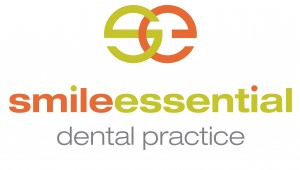
1 in 5 people will suffer from mouth ulcers at some point in their life. Ulcers can be painful when eating, drinking or brushing teeth. It’s a problem that we see often at our Leicester dental practice. It’s ok to suffer from occasional mouth ulcers, they are usually harmless and generally clear up on their own.
What causes mouth ulcers?
Believe it or not, the exact cause of mouth ulcers is still unknown!
There are things that are thought to trigger simple mouth ulcers such as stress or certain foods such as citrus fruits (such as lemons, oranges, pineapples, apples, figs, tomatoes and strawberries), can trigger a mouth ulcer or make the problem worse. Sometimes a sharp tooth surface or dental appliances, such as braces or ill-fitting dentures, might also trigger mouth ulcers.
Occasionally cases of complex mouth ulcers are caused by an underlying health condition, such as an impaired immune system; nutritional problems, such as vitamin B-12, zinc, folic acid, or iron deficiency and gastrointestinal tract diseases, such as Coeliac disease and Crohn’s disease.
Seek medical advice if they last longer than 3 weeks or keep coming back.
Sometimes medications can cause mouth ulcers, if you notice a correlation between your medication and mouth ulcers then it’s important you continue with the medication but seek advice from your GP as soon as possible.
How are mouth ulcers treated?
Pain from a mouth ulcer generally lessens in a few days and the sores usually heal without treatment in about a week or two.
If sores are large, painful or persistent, your dentist may prescribe an antimicrobial mouth rinse, a corticosteroid ointment, or a prescription or non-prescription solution to reduce the pain and irritation.
Over the counter remedies such as Bonjela may help to relieve some discomfort temporarily.
When to seek medical advice:
Unusually large sores
Sores that are spreading
Sores that last three weeks or longer
Intolerable pain despite avoiding trigger foods and taking over-the-counter pain medication
Difficulty drinking enough fluids
High fever with the appearance of the mouth ulcer(s)
Can mouth ulcers be prevented?
Sadly there is no cure yet for mouth ulcers. You may be to reduce the frequency of ulcers with the following:
Practice good dental hygiene
Avoid foods that irritate your mouth, including acidic or spicy foods
Avoid irritation from gum chewing
Using a soft-bristled toothbrush after meals and flossing daily, which will keep your mouth free of foods that may trigger a sore.
If you’re worried about mouth ulcers contact us here…


